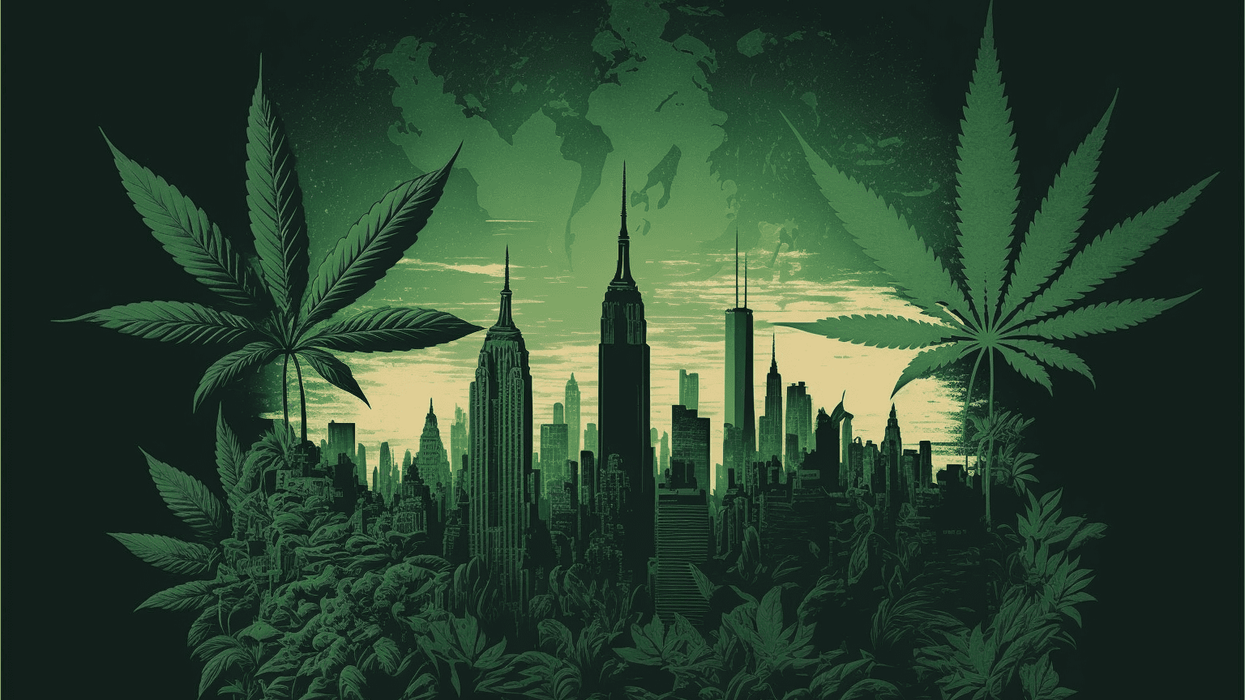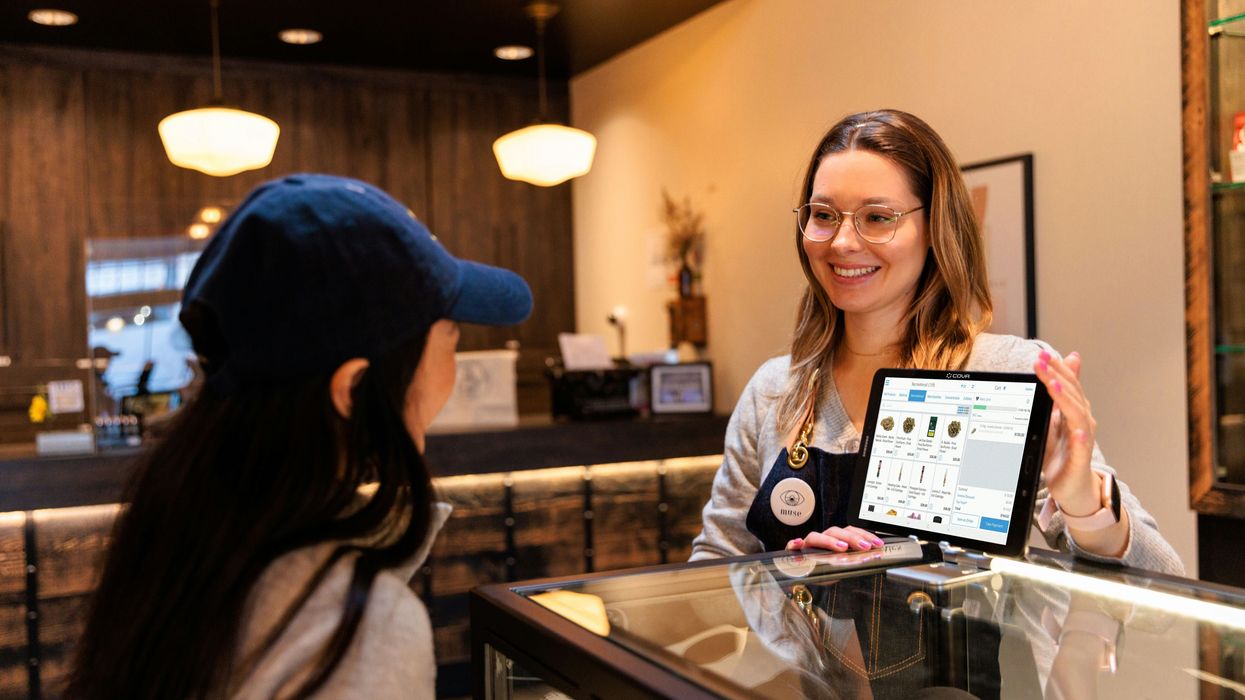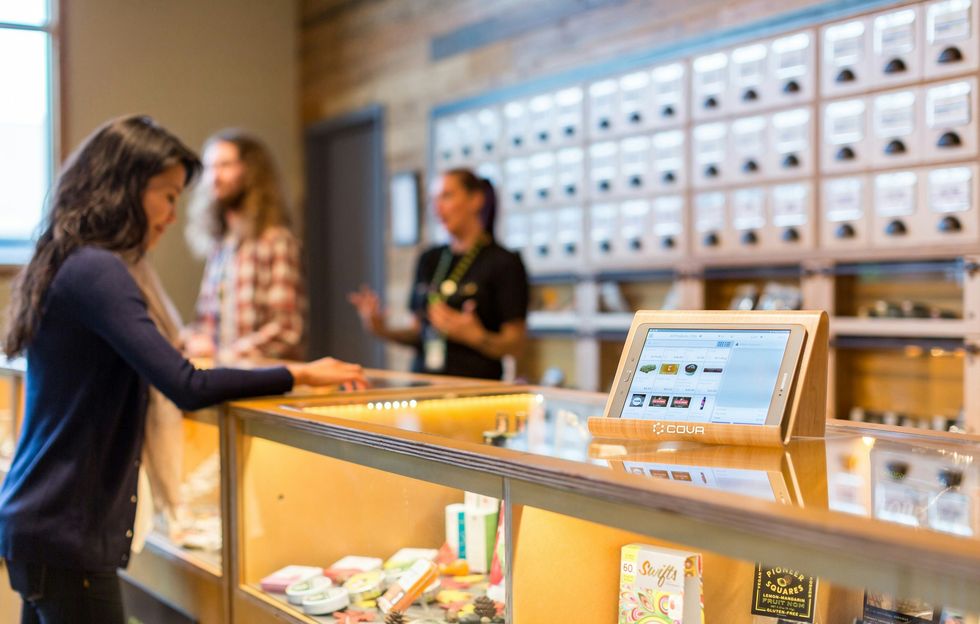In the ‘70s and ‘80s Barry Foy was a cannabis kingpin, building a weed empire up and down the East Coast.
Foy and his team smuggled over 250 tons of pot from across the globe, and it was awesome.
No violence, no guns – just a crew of men and women from South Carolina, who newspapers referred to as the Gentlemen Smugglers due to their penchant for nonviolence.
“The grass came from Colombia and Jamaica, the hash from Lebanon, and the crew from coastal South Carolina…illicit entrepreneurs who risked treacherous waters, civil wars, safety, and sanity to rise to the top,” reads the Gentlemen Smugglers website.
If you smoked weed on the East Coast during the late ‘70s or early ‘80s, chances are it was smuggled in by Foy and his team.
Then along came President Reagan, renewing the War on Drugs through an all-out sting called Operation Jackpot. Their main target: the Gentlemen Smugglers.
Eventually most of the crew was apprehended, and Foy spent 11 years in prison after he was hit with the federal kingpin statute – Code §848 Continuing Criminal Enterprise.
Now the Gentlemen Smugglers are back. This time they’re legal, and they’re starting out in Massachusetts with plans to repeat cannabis history up and down the East Coast.
A Cannabis Brand 50 Years in the Making
“It’s come around full circle,” Foy says in an interview with The Bluntness. “Massachusetts fits right in there with us and what we did in the past.
“We’ve been working on the brand for almost two years to get to the point we’re at now, and we feel really good about what we’re doing,” Foy continues.
“It’s a hell of a story. I’m not just a brand that I made a name up for. I was in the cannabis business a long time before it became what it is today.”
In the cannabis world today, it’s hard to ignore a brand with such a deep, compelling story. And why would you want to ignore it?
“It feels like they're a group of guys that you would want to root for. There's a bit of a Robin Hood component in this story that resonates with people,” says Kevin Harrison, founder/creative at Gentlemen Smugglers.
“It's fun, rebellious, and they weren't violent. They were less Scarface and more Matthew McConaughey. That’s layered on top of it being an authentic story. And so hopefully, people will connect with the vibe of the brand as well as the products.”
A Focus on Product Quality
In addition to the epic storytelling, a big part of the Gentlemen Smugglers brand also focuses on quality, partnering with premium brands in the space, such as Root & Bloom in Massachusetts.
“We put a lot of thought and time into product, and it has to be premium on our end,” Foy notes. “Even back in the smuggling days I was very concerned about getting the right product with quality and consistency in mind. And that was not always easy to do if you were in a foreign country.”
Now it is easier to focus on quality, Foy continues. It’s much more controlled.
“We're going to concentrate on our premium side, and we will always bring that to the masses.”
Making Social Justice a Priority
As the Gentlemen Smugglers re-enter the cannabis trade, social justice is also a top priority through their partnership with the Last Prisoner Project (LPP).
It’s an important element for obvious reasons, not just for Barry but the whole crew, says Thomas Cutler, general manager at Gentlemen Smugglers.
“We've got a lot of the smugglers that worked for Barry, who are just the most tremendous characters; they're literally all larger than life, and they all have unique stories,” he says.
“Barry was in charge, but they all had specific jobs, roles, and anecdotes and crazy adventures. By and large, they all were put away and now it’s their time to turn a corner into this legal market.”
To Foy’s mind, partnering with LPP was a no-brainer. “You see people in jail for longer than me and for a hell of a lot less involvement,” he says.
“There’s been a lot of talk lately about getting people out of jail from the government’s side, but we all know that takes forever. So part of our profits will go to the Last Prisoner Project, and we’re proud to be involved with this group.”
Assessing the Industry Today
Foy settled on Massachusetts for his opening act in legal cannabis because of his smuggling history along the state’s coastline and also because he likes where the state is headed with its cannabis market.
“It’s still in its infancy, and Massachusetts is doing a pretty good job. I think their taxes are a little bit high, which will have to be adjusted,” Foy says, adding that social equity is an important factor.
With Foy’s experience, it’s hard not to pepper him with questions about how he sees the industry taking shape.
“In any kind of business like this -- being that it's basically in the early stages -- you're going to have all types of individuals and companies circling like sharks. I think over time, they'll get weeded out,” he says, emphasizing that he hopes lawmakers realize they can’t allow the corporate world to take full control of cannabis.
“The corporate world was always kind of against legalization, but now that they see the money, they've started to come running.”
Foy believes this will correct itself down the road. Whether it’s regulators stepping in or the people getting hip to who’s corporate and who’s real, the best brands will rise to the top, he says.
“I just hope the corporate world doesn't strangle what's taken years of small numbers of people and groups to get us where we are today,” Foy adds.
“Now that the government's involved in this, I hope there's some good people running these regulatory boards, fair-minded people who can see the writing on the wall that this can't become something so big and corporate that it loses its identity, or loses its roots from how we got to where we are today.
“And so hopefully, my story can help bolster the philosophy that real people need to be in this business, and the corporate has to be watched very closely about how they try to always come in and control things.”
Need a little more Bluntness in your life? Subscribe for our newsletter to stay in the loop.

















 How to Become a Budtender: Complete Career Guide & Salary Information - The Bluntness Photo by
How to Become a Budtender: Complete Career Guide & Salary Information - The Bluntness Photo by  How to Become a Budtender: Complete Career Guide & Salary Information - The Bluntness Photo by
How to Become a Budtender: Complete Career Guide & Salary Information - The Bluntness Photo by